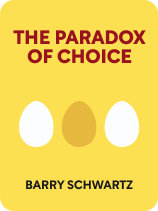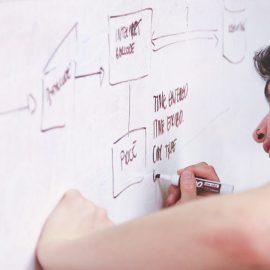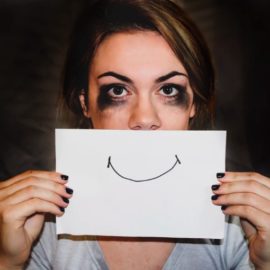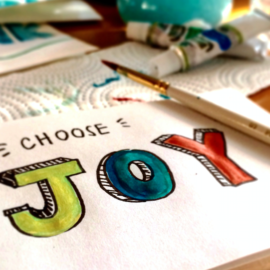

This article is an excerpt from the Shortform book guide to "The Paradox of Choice" by Barry Schwartz. Shortform has the world's best summaries and analyses of books you should be reading.
Like this article? Sign up for a free trial here .
What are the biggest personal life choices that everybody must make? In what ways does expanded choice affect these decisions?
In his book The Paradox of Choice, Barry Schwartz explains that there are three major personal choices that we all must make in life: relationships, religion, and identity. Schwartz says that these already difficult decisions are complicated by the fact that people today have more options than ever.
Here’s an overview of Schwartz’s discussion on personal life choices.
Life Is Made of Choices
The book The Paradox of Choice by Barry Schwartz explores and defines the major categories of choices—consumer choices, complex choices, and personal life choices—and the consequences of expanded choice in each of them:
- Consumer choices are choices about consumer or tangible goods, from potato chips to computers.
- Complex choices involve more complicated decisions about intangibles that have a greater impact on our lives than products. Examples are choosing which college to attend, which health insurance plan to choose, or which cell phone plan to purchase.
- Personal life choices are broad, long-term choices that don’t explicitly involve purchases, but instead incorporate how we want to experience our lives and present ourselves to the world. These typically involve choices about our personal relationships and our identities (religious, social, and so on).
This article will focus solely on the third category: personal life choices.
Personal Life Choices
The third category of choices we regularly make is personal life choices. These include close relationships, spiritual practices, identity, and self-expression.
Relationships
Schwartz writes that standards for romantic relationships are less defined than they were in the past. While strict social norms previously led many people to marry, buy property, and have children on an expected timeline, most people now have the freedom to create romantic relationships that work best for them.
(Shortform note: Same-sex marriage and interracial marriage are two types of relationships that have grown significantly in social acceptance following their respective legalizations. Same-sex marriage was legalized federally in 2015, at which point 60% of the public supported it; that support climbed to 70% in 2021. When interracial marriage was legalized federally in 1967, 20% of the public supported it; as of 2021, 94% of the public supports interracial marriage.)
Many people are now able to live happy lives in relationships that would have been more difficult or impossible in the past. However, the number of choices within the relationship (like whether to move in together, whether to marry, and whether to have children) can stress relationships.
| Expanded Choice in Romantic Relationships Since this book was written, dating apps and websites have expanded the pool of potential partners, although some of these services are more useful than others. In some of the most popular apps, the number of options can be overwhelming—for example, Tinder users swipe through an endless array of photographs, accumulating “matches” along the way. A Nautilus article argues that websites such as eHarmony that curate your matches are more effective because they force you to look closely at a few people rather than attempting to decide among dozens. The article quotes Schwartz as pointing out that “with a million options, you’re less likely to persevere” in a relationship. |
Religion
Most people still inherit their parents’ religious practices, but it is now largely accepted to either change religious affiliations or to practice only the parts of a religion that are meaningful to you.
Schwartz asserts that it benefits many people to be able to choose their religious affiliation or non-affiliation and which aspects of their religion to practice. However, choosing a religion and deciding the extent of one’s observation are challenging decisions that can preoccupy you for years.
(Shortform note: In the United States, switching religions is common: In a 2015 survey, 42% of people said they’d changed their religious affiliation at least once. Disengaging from religion entirely, too, is becoming more common: Between 2007 and 2014, people reporting a lack of religious affiliation increased from 16% to 23%.)
Identity
All of us possess multiple identities: race, socioeconomic status, gender, sexuality, and so on.
Schwartz writes that, in the past, your identity was typically associated with your family history—for instance your ethnic, national, or class background. People now have more choice to express which aspects of their identity are important to them. It’s also common to choose which identities to highlight in which contexts (for instance, someone can engage with their queer identity in an L.G.B.T.Q. social group, then engage with their Jewish identity when attending services at their synagogue).
(Shortform note: Legal scholar Kimberlé Crenshaw coined the term intersectionality in a 1989 paper describing how Black women experience an overlap of gender and racial discrimination; the term is now widely used to describe how your numerous identities—like gender, race, and class—combine to create distinct experiences, advantages, and disadvantages in your life.)

———End of Preview———
Like what you just read? Read the rest of the world's best book summary and analysis of Barry Schwartz's "The Paradox of Choice" at Shortform .
Here's what you'll find in our full The Paradox of Choice summary :
- Why the more choices we have, the more stressed and indecisive we feel
- How to better navigate our choices, from groceries to health insurance
- Whether it's better to seek the best or accept "good enough"






